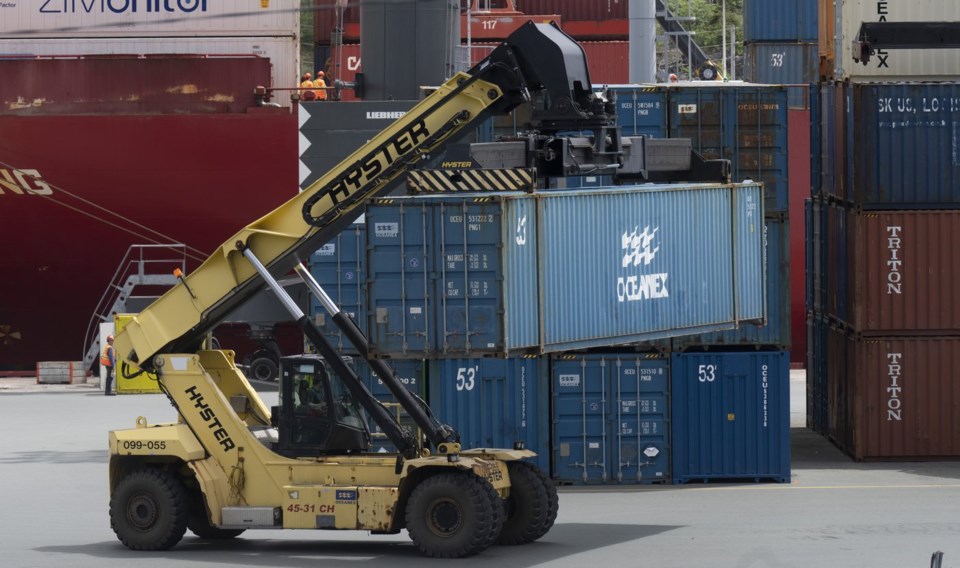TORONTO — The latest tariff threat from U.S. President Donald Trump is drawing condemnation from business leaders, though more because of the added uncertainty than the potential direct impact that experts played down.
Trump threatened to impose a 35 per cent tariff on all Canadian goods On Aug. 1 in a letter released late Thursday, only for White House officials to later clarify it would only apply to non-CUSMA compliant goods.
The narrowed application makes it mostly meaningless, said Joseph Steinberg, an economics professor at the University of Toronto
"The CUSMA exemptions remaining in place mean that all of this is pretty much all just talk, and nothing that's really going to materially affect our economy," he said.
"I can't imagine that this is anything other than just some kind of tough negotiating talk to try to extract some concessions."
Canadian exports for May paid overall a two per cent tariff rate, showing how little effect the existing headline tariff rates on non-compliant goods, metals and autos is having, he said. Some companies have stockpiled goods and held back shipments, partially explaining the low number, but overall he said even boosting the broad rate to 35 per cent would increase the effective rate by only a fraction of a per cent.
Added uncertainty was the main effect that Derek Holt, head of capital markets economics at Scotiabank, highlighted from the latest salvo.
"This historic uncertainty surrounding the rules of commerce will damage confidence to spend, hire, and invest in the world economy including in America. It is a total own-goal by a U.S. administration whose policies are needlessly damaging the U.S. and world economies," he said in a note.
Canadian exporters who didn't previously bother have been rushing to become complaint, said Holt. About half are already approved, and expectations are that 80 to 90 per cent of exporters will be able to get there, leaving an effective tariff rate of between four and seven per cent, he said.
"If he were to go ahead, it could still be a meaningful hit."
The tariffs are in addition to the existing tariffs on metal and automotive exports, which makes it all the more important Canada manages to get those lifted, said Dennis Darby, head of Canadian Manufacturers & Exporters.
"It's better than it could be, but of course it puts more pressure on that negotiation that the Prime Minister announced back at Kananaskis."
Prime Minister Mark Carney had set a 30-day deadline to reach deals on the various tariffs, but he said in a statement that Canada will continue to work to secure a trade deal with the U.S. by a revised deadline of Aug. 1.
The delay is just part of a longer waiting game that businesses are having to navigate, said Darby.
"Nobody in our sector wants to make a decision that ultimately, as a result of the president's capriciousness, will suddenly will be the wrong decision in a month."
He said some kind of deal on tariffs would provide some degree of certainty, at least a window until full renegotiations of the CUSMA trade deal launch.
"That would be the best of a bad lot."
Candace Laing, head of the Canadian Chamber of Commerce, said in a statement that the tariffs would continue to damage the "most productive trade relationship two countries have ever had" and urged both sides to reach a real and reliable deal.
Giles Gherson, CEO of the Toronto Region Board of Trade, says members are "deeply frustrated" by yet another turn in U.S. trade policy that is not grounded in economic logic.
He says the federal government must keep negotiating for the best deal possible, while the business community needs to focus on what it can control.
This report by The Canadian Press was first published July 11, 2025.
Ian Bickis, The Canadian Press



